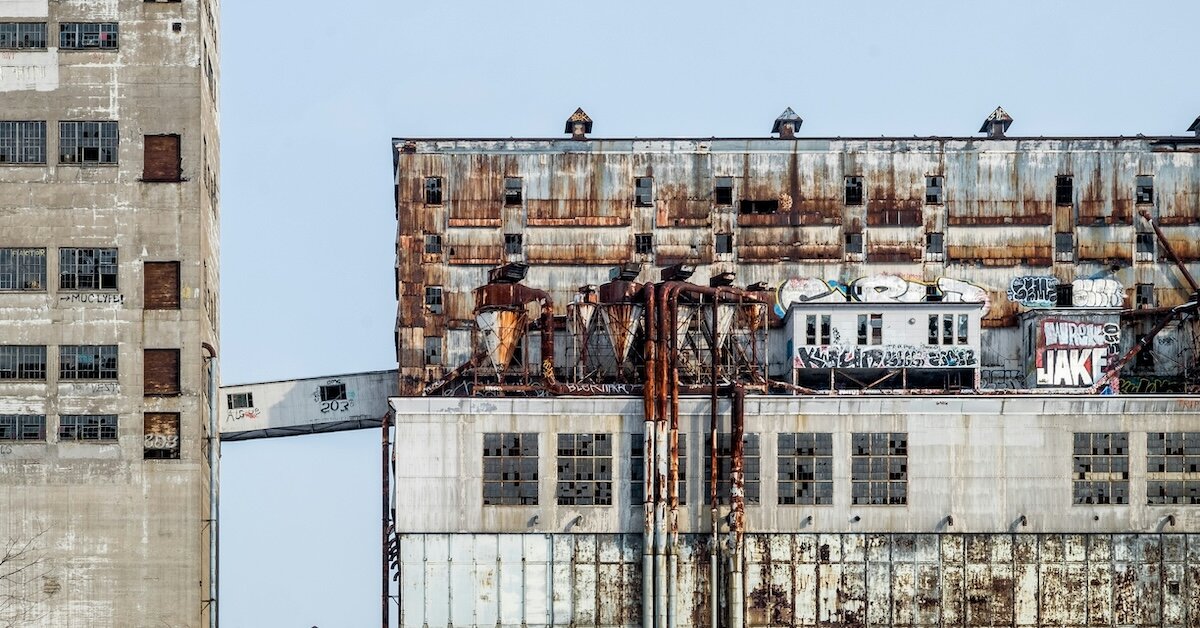Investing in Distressed Commercial Real Estate: Strategies for Success


From abandoned warehouses to empty strip malls, there are plenty of examples of distressed commercial real estate across the U.S. Investing in these properties can be a lucrative part of a balanced real estate portfolio. Here are ten strategies for success when you’re looking to invest in distressed commercial real estate.
What is Distressed Commercial Property?
Distressed commercial properties are under such financial strain that foreclosure may be on the horizon. These dire economic straits may arise due to an owner's inability to pay their mortgage, but that's not the only reason properties become distressed. Improper building maintenance can lead to deterioration, legal challenges, and other environmental factors that may cause stress that leads to a property becoming less viable for the owner.
Why Invest in Distressed Commercial Property?
As with any real estate investment, distressed commercial property comes with its own risks and challenges. However, a variety of positives make these an attractive proposition. They include:
- Cheaper acquisition costs
- Opportunities for value-added investment (i.e., repositioning, renovation, or redevelopment)
- Solid returns
- A more diverse investment portfolio
- Potential for long-term growth

10 Strategies for Distressed Commercial Real Estate Investment
It is important to note that the property you are considering became distressed for a reason. That said, there are ways to take a flailing commercial property and turn it into a lucrative investment. Here are ten strategies for success.
1. Do Your Due Diligence
2. Time the Market
Pay careful attention to your timing when investing in distressed commercial real estate. Examine key economic indicators and property market trends to determine whether now is the right time to acquire a commercial property. However, timing can be tricky — you want to weigh holding for the right time against missing a potential opportunity.

3. Consider Partnerships and Joint Ventures
First-time investors in commercial real estate should consider forming partnerships or joint ventures with more experienced investors or developers. It takes the financial burden off a single investor and can mitigate the risk. Experienced investors and developers have resources and expertise that can be valuable. They also bring access to capital and a professional network of contractors who can help with construction.
4. Consider Adaptive Reuse
If your interest in distressed commercial real estate doesn't match what's available, consider adaptive reuse of properties. This strategy converts underutilized buildings into properties with alternative uses that fit the current market better. Potential adaptive reuse includes mixed-use development, coworking spaces, or other creative office areas.

5. Highlight Value-Add Opportunities
6. Negotiate Favorable Terms
The best deals are made at the negotiation table. The price of a distressed commercial property is just a starting point. There are many ways to improve your investment position, including offering a lower price, negotiating all or partial seller financing, or structuring a deal with contingencies. These contingencies include property improvements made by the owner before the sale.

7. Secure Strong Financing
8. Create an Active Management Plan
9. Diversify Your Commercial Portfolio
Remember when the pandemic sent retail outlets reeling as shoppers stayed home and purchased online? So do commercial real estate investors with portfolios full of retail properties. Yes, distressed commercial real estate adds diversity to your portfolio, but there can be diversity within this category, too. Think retail, warehouse, and industrial space, among others.
10. Plan Your Exit
What is your goal in investing in distressed commercial real estate? Do you want to hold on to the property long term, generating regular rental income, or are you planning on selling it for a profit after renovation? Having goals for the investment drives your decisions and can maximize your returns.

Where to Find Distressed Commercial Real Estate
Some distressed commercial real estate is easily visible from the side of the road, with large signs indicating its availability for sale. But the best bargains are often hidden, accessible only to those willing to dig for them.
When starting your search for distressed commercial property, here’s where to look:
- Websites: Commercial real estate investing websites may have special sections for distressed properties.
- Brokers: Some real estate agents specialize in commercial property, and some drill down even further to distressed commercial real estate.
- Lenders: Lenders are an excellent resource, as they become aware of distressed properties sooner than the average investor.
- Investor networks: If you are partnering with another investor, chances are they have a network that can provide word-of-mouth leads on potential properties for sale.
- Targeted marketing lists: Targeted marketing identifies specific buyers and sends only those properties that match their criteria.
Finding a distressed property that meets your investment goals can take some time, so be persistent.
The Bottom Line: Should You Buy Distressed Property?
All investment comes with risk. The only way to determine if buying a distressed commercial real estate property is a good investment is to carefully weigh the pros and balance out the risks.

Ben Mizes is the Co-Founder and CEO at Clever Real Estate, the nation’s leading real estate education platform for home buyers, sellers, and investors.









